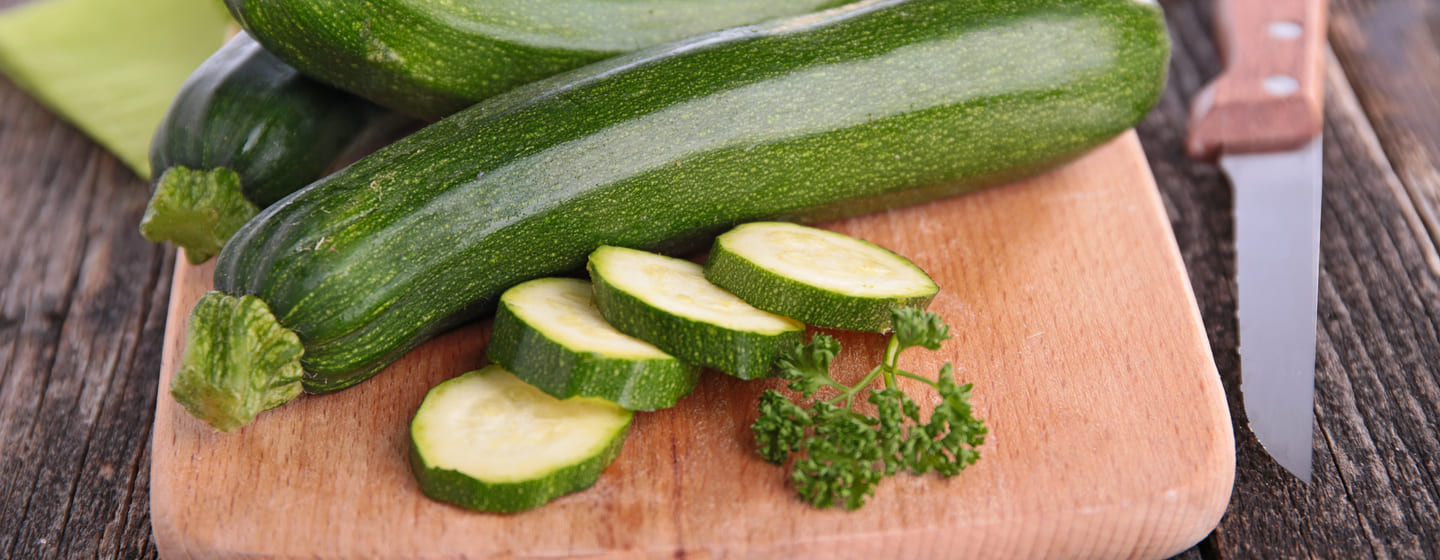As dog owners, we often find ourselves wondering what human foods are safe to share with our furry companions. One such food that may pique our curiosity is cucumbers. If you think How Much Cucumbers Can Dogs Eat? Dogs can eat cucumbers in moderation, but too much can lead to digestive issues. Cucumbers are safe for dogs to consume as long as they are given in small quantities.
These crunchy vegetables are low in calories and rich in vitamins k, c, and b1, making them a healthy snack option for your furry friend. However, it’s important to note that cucumbers should be offered as an occasional treat and not as a substitute for their regular diet.
While most dogs enjoy the refreshing taste and crunchiness of cucumbers, it’s essential to monitor their intake to avoid potential complications. In this article, we will explore the benefits and risks of feeding cucumbers to dogs, as well as provide guidelines on how to incorporate this vegetable into their diet safely.
What is cucumber

Cucumbers are a popular vegetable that belongs to the gourd family, scientifically known as Cucumis sativus.
They are characterized by their elongated shape, smooth skin, and crisp texture. Cucumbers are typically green in color, although there are also varieties that are yellow or even white.
They have a high water content, making them refreshing and hydrating, especially during hot summer months.
Cucumbers are commonly consumed raw in salads, sandwiches, or as a standalone snack.
They are low in calories and rich in vitamins K and C, as well as minerals like potassium and magnesium.
With their mild flavor and crunchy consistency, cucumbers have become a staple ingredient in many cuisines worldwide.
How much can dogs eat Cucumbers in a single day
As with any new food, it’s advisable to introduce cucumbers gradually into your dog’s diet to monitor their reaction and ensure they tolerate it well. Start with small portions and observe for any signs of digestive upset, such as diarrhea or vomiting.
In terms of portion size, a general guideline is to offer cucumbers as a treat or a supplement to your dog’s regular balanced diet. As a low-calorie and low-fat vegetable, cucumbers can be a healthy snack option. However, they should not replace a significant portion of your dog’s regular food.
As a rough estimate, you can offer a few cucumber slices or chunks, equivalent to approximately 10% of your dog’s daily food intake. It’s crucial to remember that moderation is key. Feeding excessive amounts of cucumbers or any food item, for that matter, can lead to digestive issues or an imbalance in your dog’s diet.
If you have any concerns or specific dietary considerations for your dog, it’s best to consult with a veterinarian. They can provide personalized advice based on your dog’s unique needs and help you determine an appropriate amount of cucumbers or any other food to include in their diet.

Credit: www.purina.co.uk
Understanding The Benefits Of Cucumbers For Dogs
Cucumbers are not only a refreshing and delicious vegetable for humans, but they can also be a beneficial addition to your furry friend’s diet. They offer various advantages for dogs, from keeping them hydrated to aiding in digestion. In this section, we will explore the benefits of cucumbers specifically for dogs.
Rich In Hydration:
- Cucumbers are made up of about 95% water, making them an excellent source of hydration for dogs.
- Ensuring your dog stays well-hydrated is vital for their overall health and can help prevent issues such as dehydration or urinary tract problems.
- Adding cucumbers to your dog’s diet can be a tasty and hydrating way to keep them cool and refreshed, especially during hot weather or after physical activity.
Low-Calorie Snack Option:
- Cucumbers are an ideal low-calorie snack option for dogs that need to watch their weight.
- They contain very few calories compared to other treats, making them an excellent choice for dogs on a diet or those prone to weight gain.
- Offering cucumbers as a snack can help your furry friend feel satisfied without the risk of overeating or consuming excessive calories.
Provides Vitamins And Minerals:
- Cucumbers are packed with essential vitamins and minerals that contribute to your dog’s overall health.
- They contain vitamin k, vitamin c, potassium, and manganese, which support various bodily functions and help maintain a strong immune system.
- These nutrients are beneficial for keeping your dog’s coat healthy, promoting proper muscle function, and supporting bone health.
Aids In Digestion:
- The high water content and fiber found in cucumbers can assist in promoting healthy digestion in dogs.
- Cucumbers can act as a natural laxative, helping to prevent constipation and keep your dog’s digestive system regular.
- Additionally, the fiber in cucumbers aids in the absorption of nutrients from other foods, ensuring your dog gets the most benefit from their meals.
Including cucumbers in your dog’s diet can provide a range of advantages, from hydration and low-calorie snacking to important vitamins and minerals and improved digestion. Just remember to introduce cucumbers gradually and in moderation, monitoring your dog’s reaction and ensuring that they are comfortable digesting this healthy and refreshing vegetable.
Factors To Consider When Feeding Cucumbers To Dogs

Dogs can be quite curious creatures when it comes to food, and cucumbers are no exception. Many pet owners wonder how much cucumbers they can safely give to their furry friends. While cucumbers are generally safe for dogs to eat, there are a few factors to consider before adding them to your dog’s diet.
From their age to their overall health and weight, here are some important things to keep in mind when feeding cucumbers to your four-legged companion.
Age Of The Dog:
- Puppies: It’s best to avoid feeding cucumbers to puppies, especially those under six months old. Their developing digestive systems may not handle the high fiber content in cucumbers well.
- Adult dogs: Cucumbers can be a great low-calorie treat for adult dogs. However, moderation is key, and it’s important to always introduce new food slowly to see how your dog’s digestive system reacts.
Overall Health And Weight:
- Health conditions: If your dog has any pre-existing health conditions, it’s always wise to consult with your veterinarian before introducing cucumbers or any new food into their diet.
- Obesity: Cucumbers can be a healthy alternative to high-calorie treats for overweight dogs. However, keep in mind that too much of any food, including cucumbers, can contribute to weight gain.
Portion Control:
- Moderation is key: While cucumbers are low in calories and generally safe for dogs, it’s important to feed them in moderation. Too much cucumber can cause an upset stomach or diarrhea in some dogs.
- Treat size: Cut cucumbers into small, bite-sized pieces to serve as treats. This helps with portion control and prevents choking hazards.
Preparation Methods:
- Fresh and plain: Dogs should only be fed fresh, plain cucumbers. Avoid any cucumbers that are pickled or seasoned with spices, as these can be harmful to your dog’s digestive system.
- Remove seeds and skin: It’s best to remove the seeds and skin from cucumbers before feeding them to your dog. The skin can be hard to digest, and the seeds can pose a choking hazard.
Feeding cucumbers to your dog can be a healthy and refreshing treat, as long as you take into account their age, overall health and weight, portion control, and proper preparation methods. Remember, always consult with your veterinarian if you have any concerns or questions about incorporating cucumbers into your dog’s diet.
Safe Limitations For Feeding Cucumbers To Dogs
Cucumbers can be a refreshing and low-calorie snack for humans, but can dogs safely enjoy this crunchy vegetable too? While cucumbers are generally safe for dogs to eat, there are some limitations to keep in mind to ensure their well-being.
It’s important to remember that moderation is key when it comes to feeding cucumbers to your furry friend. Start with small amounts and monitor for any digestive issues. If you notice any signs of discomfort or unusual behavior, it may be best to consult with a veterinarian.
They can provide the best guidance on the safe amount of cucumbers for your dog and address any specific concerns you may have. By following these safety precautions, you can let your dog enjoy the occasional cucumber treat without worry.
Potential Risks And Allergic Reactions To Watch Out For
Cucumbers are a crisp and refreshing vegetable that many of us enjoy eating, but as pet owners, it’s important to be aware of the potential risks and allergic reactions that cucumbers can have on our furry friends. While cucumbers can be a healthy snack option for dogs in moderation, it’s crucial to know the potential hazards to keep our pets safe and healthy.
In this section, we will discuss three main areas of concern when it comes to feeding cucumbers to dogs: upset stomach or diarrhea, allergic reactions, and the possibility of intestinal blockage. Additionally, we’ll touch on the importance of considering pesticide or chemical residue in store-bought cucumbers.
Upset Stomach Or Diarrhea:
- Feeding too many cucumbers to your dog may cause an upset stomach or diarrhea.
- Dogs have different sensitivities, so it’s always important to introduce new foods gradually to avoid any digestive issues.
- If you notice any signs of gastrointestinal distress after your dog consumes cucumbers, it’s best to consult your veterinarian.
Allergic Reactions:
- While cucumbers are generally safe for dogs, some canines may have an allergic reaction to this vegetable.
- Watch out for symptoms such as itching, hives, swelling, or difficulty breathing.
- If you suspect your dog is experiencing an allergic reaction, seek immediate veterinary attention.
Intestinal Blockage:
- Dogs are prone to chewing and swallowing things they shouldn’t, including cucumbers.
- The risk of intestinal blockage increases if your dog devours large chunks of cucumber without proper chewing.
- Monitor your dog while they eat cucumbers to prevent any issues, and cut them into small, manageable pieces.
Pesticide Or Chemical Residue In Store-Bought Cucumbers:
- Ensure that the cucumbers you feed your dog are organic or thoroughly washed to reduce the risk of pesticide or chemical residue.
- Some commercial cucumbers are treated with pesticides, which can be harmful to dogs if ingested.
- Opting for organic cucumbers or washing store-bought ones can help mitigate this risk.
Remember, always consult with your veterinarian before introducing new foods into your dog’s diet. While cucumbers can provide hydration and certain nutrients, moderation and awareness of potential risks are key to keeping our furry friends healthy and happy.
Alternative Ways To Incorporate Cucumbers Into A Dog’S Diet

Cucumbers are not only a healthy and refreshing snack for humans, but they can also be a great addition to a dog’s diet. Whether you are looking to increase your dog’s water intake or provide them with a low-calorie treat, cucumbers are a versatile option.
In this section, we will explore alternative ways to incorporate cucumbers into a dog’s diet, ensuring they can enjoy the benefits of this nutritious vegetable.
Adding Cucumbers To Homemade Treats:
- Cucumbers can be a delicious and nutritious addition to homemade dog treats.
- Consider incorporating grated or pureed cucumber into your dog’s favorite treat recipe.
- This will not only add a refreshing crunch but also provide valuable vitamins and minerals.
Mixing Cucumbers Into Their Regular Meals:
- Another way to incorporate cucumbers into your dog’s diet is by mixing them into their regular meals.
- Finely chop cucumbers and mix them with their regular kibble or wet food, ensuring a balanced meal.
- This will add variety and an extra burst of hydration to their daily meals.
Freezing Cucumber Slices As A Refreshing Snack:
- Dogs can enjoy the cool and refreshing sensation of frozen cucumber slices.
- Simply slice cucumbers into small rounds, freeze them on a baking sheet, and offer them as a healthy snack.
- This not only helps keep your dog hydrated but also provides a soothing treat during hot summer months.
Blending Cucumbers Into A Puree As A Food Topper:
- If you want to add a burst of flavor and nutrition to your dog’s meals, consider blending cucumbers into a puree.
- This can be used as a food topper, enhancing the taste and nutritional content of their regular food.
- The puree can also be frozen into small cubes and used as a refreshing treat.
Incorporating cucumbers into your dog’s diet is a simple and beneficial way to provide them with additional hydration and essential nutrients. Whether you choose to add them to homemade treats, mix them into regular meals, freeze them for a refreshing snack, or blend them into a puree, your dog will surely enjoy the variety and health benefits that cucumbers have to offer.
Just remember to introduce new foods gradually, and always consult with your veterinarian before making any significant changes to your dog’s diet.
Frequently Asked Questions On How Much Cucumbers Can Dogs Eat
Can Dogs Eat Cucumbers?
Yes, dogs can eat cucumbers. Cucumbers are low in calories and a great source of hydration for dogs, especially during hot weather. However, it is important to remove the seeds and peel, and cut the cucumber into small, bite-sized pieces to prevent choking hazards.
Are Cucumbers Safe For Dogs To Eat?
Yes, cucumbers are generally safe for dogs to eat. They are low in calories, high in water content, and provide a range of vitamins and minerals. However, it is important to feed cucumbers in moderation and watch for any signs of digestive issues or allergies.
Can Cucumbers Be Harmful To Dogs?
In general, cucumbers are not harmful to dogs. However, dogs with certain health conditions, such as kidney problems, may need to avoid cucumbers due to their high water content. Additionally, the skin and seeds of cucumbers can be difficult for dogs to digest, so it’s best to remove them before feeding cucumbers to your dog.
How Should I Prepare Cucumbers For My Dog?
When feeding cucumbers to your dog, it’s important to prepare them properly. Remove the skin and seeds as they can be difficult for dogs to digest and pose a choking hazard. Cut the cucumber into small, bite-sized pieces to make it easier for your dog to eat and avoid any choking risks.
What Are The Benefits Of Feeding Cucumbers To Dogs?
Feeding cucumbers to dogs can provide several benefits. Cucumbers are low in calories and can aid in weight management. They are a good source of hydration, especially during hot weather. Cucumbers also contain vitamins a, k, and c, as well as minerals like potassium and magnesium, which contribute to overall canine health.
Conclusion
I think, you fully understood .can dogs eat Cucumbers? Cucumbers can be a healthy addition to your dog’s diet in moderation. They are low in calories and packed with essential vitamins and minerals. However, it’s important to introduce cucumbers slowly and in small quantities to avoid any digestive issues.
Always remove the peel and seeds before feeding cucumbers to your furry friend, as they can be difficult to digest. Remember to consult your veterinarian before making any changes to your dog’s diet, especially if they have any underlying health conditions.
While cucumbers can provide hydration and nutrients, they should not replace a balanced and complete diet for your dog. As with any new food, it’s crucial to monitor your dog for any adverse reactions. By following these guidelines, you can incorporate cucumbers into your dog’s diet in a safe and beneficial way.









